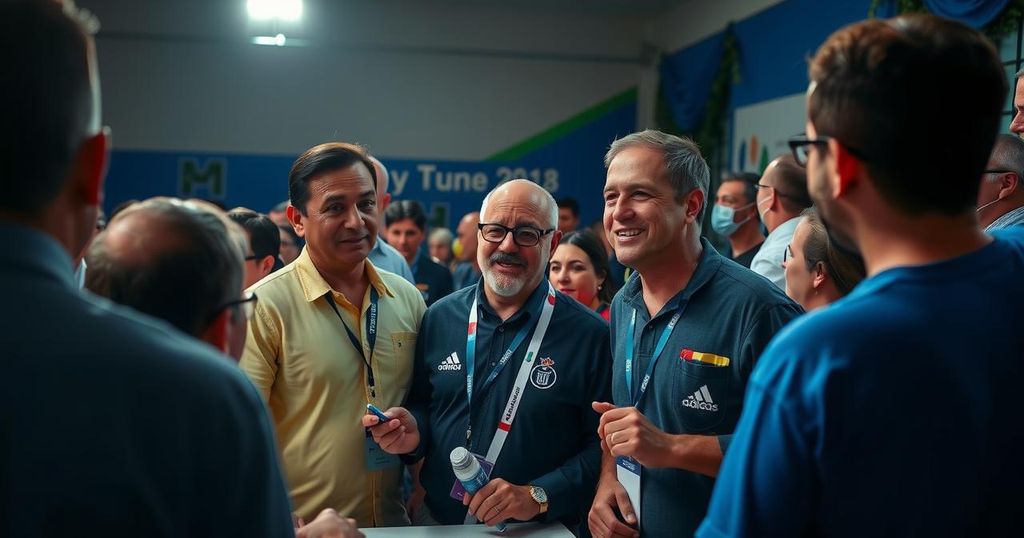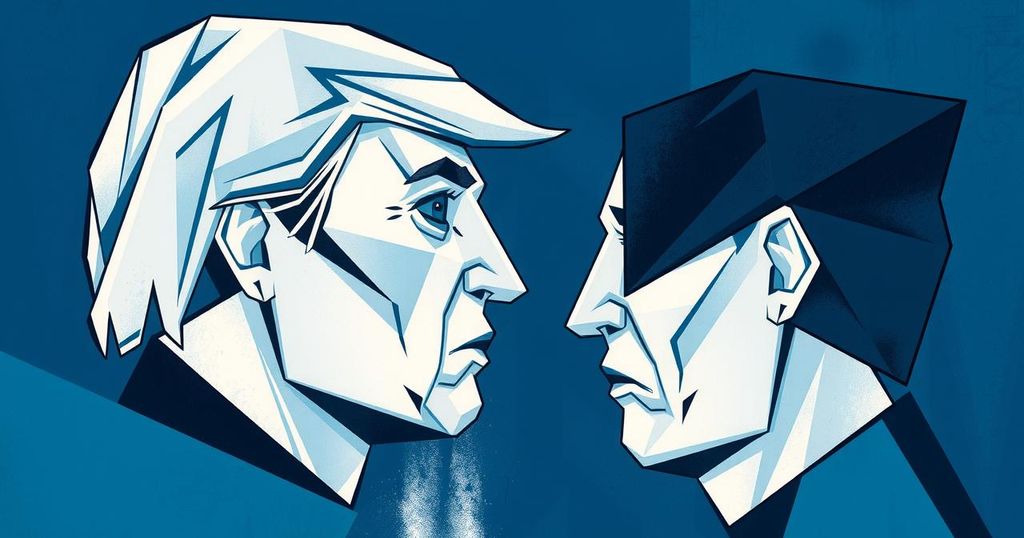World news
2024 ELECTIONS, ARGENTINA, ASIA, BRAZIL, BRICS, COLORADO PARTY, CUBA, DELGADO, ELECTION, ELECTIONS, FRENTE AMPLIO, JOSE “ PEPE, LUIS LACALLE POU, MEXICO, MUJICA, NATIONAL PARTY, NORTH AMERICA, OR, PHILIPPINES, PRESIDENTIAL ELECTION, SOUTH AMERICA, TRADE RELATIONS, URUGUAY, VENEZUELA, VOTER TURNOUT
Marisol Gonzalez
0 Comments
Uruguayans Cast Votes in Tight Presidential Run-off Election
Uruguay is holding a presidential run-off election between leftist candidate Yamandu Orsi and right-wing candidate Alvaro Delgado. The election follows five years of conservative governance under President Luis Lacalle Pou, who maintains a 50 percent approval rating. With initial polls indicating a narrow race, both candidates aim to attract voters from smaller parties. The outcome will shed light on Uruguay’s political stability amid global trends of declining support for incumbents.
Uruguayan citizens are casting their votes today in a closely watched presidential run-off election. The leftist opposition, led by the Broad Front candidate Yamandu Orsi and endorsed by the popular former President Jose “Pepe” Mujica, seeks to regain authority after five years under a right-wing coalition headed by outgoing President Luis Lacalle Pou. Polls opened at 8 AM local time and are set to close at 7:30 PM, with initial results anticipated shortly thereafter.
The election features a competitive landscape as voters must choose between Orsi and Alvaro Delgado, a candidate from the National Party, part of the ruling coalition. Final opinion polls indicate a razor-thin margin, potentially as few as 25,000 votes separating the contenders. It is noteworthy that, unlike recent polarized elections in other parts of Latin America, Uruguay’s political climate remains comparatively amicable, with both sides seeking to appeal to a broad base of voters without veering too far from moderation.
Despite President Lacalle Pou’s commendable approval rating of 50 percent, his coalition faces criticism over crime rates, overshadowing positive economic indicators such as rising employment and wages. Orsi, who garnered 43.9 percent of the votes in the first round, reassured voters of his intention to maintain stability, while Delgado highlighted the continuity of governance under the current administration, which he deems effective.
Neither coalition commands a majority in the lower house, yet Orsi maintains a Senate majority with 16 of 30 seats won during the initial voting. Both candidates are vying for support from approximately 8 percent of voters from smaller parties as well as those who abstained from the first round. However, recent debates have had a limited impact on electoral sentiments, leaving some voters uncertain about their choices. The 2023 elections will ultimately reflect whether Uruguay can diverge from the global pattern of diminishing support for incumbents amid challenges such as inflation and rising living costs.
The article discusses the run-off election in Uruguay, where voters are tasked with selecting a new president amidst a backdrop of political tension following a five-year period of conservative governance. The main contest is between the leftist candidate Yamandu Orsi and right-wing candidate Alvaro Delgado. The importance of this election lies not only in the candidates’ differing political platforms but also in how it contrasts with the more polarized political climate seen in neighboring countries, reflecting Uruguay’s historically moderate political trend.
In conclusion, the Uruguayan presidential run-off election represents a significant moment for the country as voters choose between leftist and right-wing candidates. With the outcome likely to be closely contested, both parties aim to rally unaligned voters as they navigate issues of public concern, including governance efficacy and economic stability. The results may signify Uruguay’s response to a broader global phenomenon affecting established political parties.
Original Source: www.aljazeera.com




Post Comment